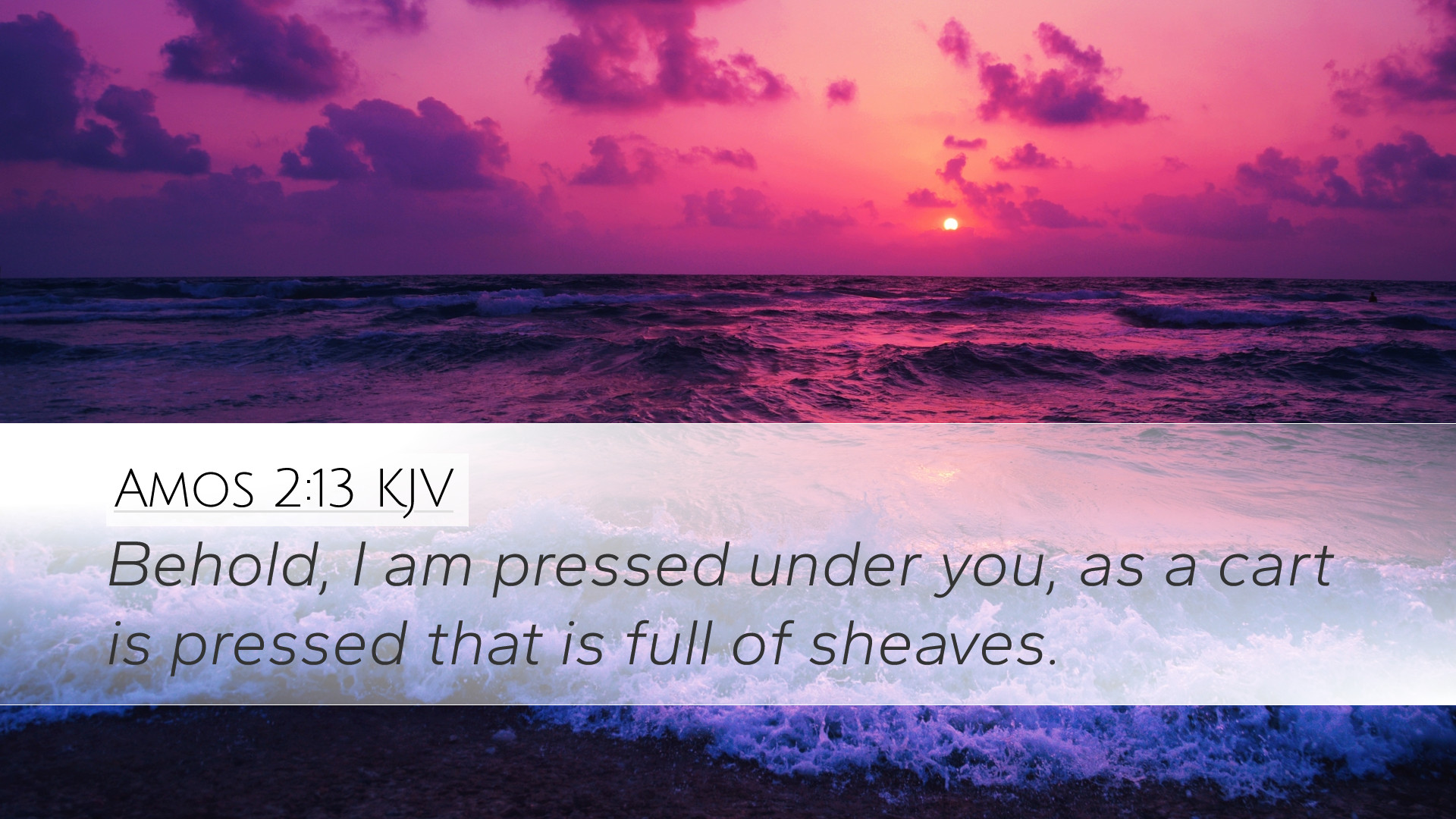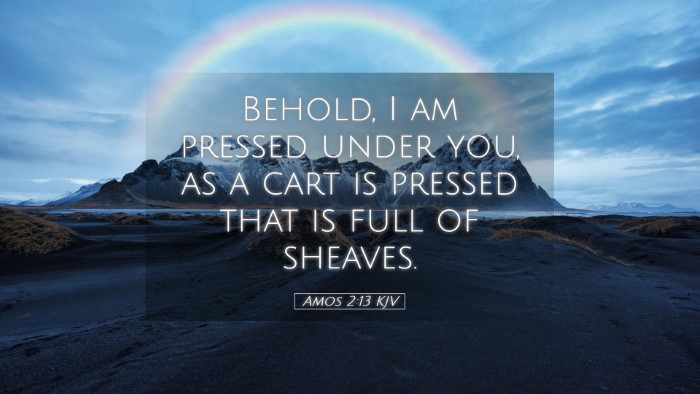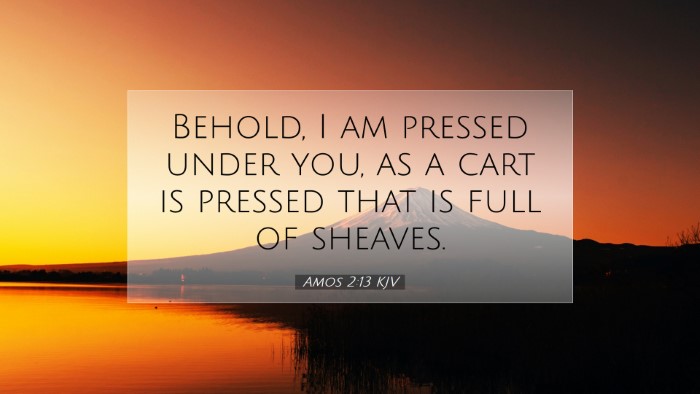Old Testament
Genesis Exodus Leviticus Numbers Deuteronomy Joshua Judges Ruth 1 Samuel 2 Samuel 1 Kings 2 Kings 1 Chronicles 2 Chronicles Ezra Nehemiah Esther Job Psalms Proverbs Ecclesiastes Song of Solomon Isaiah Jeremiah Lamentations Ezekiel Daniel Hosea Joel Amos Obadiah Jonah Micah Nahum Habakkuk Zephaniah Haggai Zechariah MalachiAmos 2:13
Amos 2:13 KJV
Behold, I am pressed under you, as a cart is pressed that is full of sheaves.
Amos 2:13 Bible Commentary
Amos 2:13 Commentary
Amos 2:13 states, "Behold, I am pressed under you, as a cart is pressed that is full of sheaves." This verse features a powerful metaphor that conveys the weight of sin and injustice faced by God.
Contextual Overview
This verse is part of a broader passage in which the prophet Amos delivers a series of judgments against the nations surrounding Israel, as well as against Israel itself. It is essential to understand the implications of this judgment within the socio-political and religious context of Amos's time.
Theological Implications
This metaphor of a cart pressed down under a load serves to illustrate the overwhelming burden of sin that God bears due to the iniquities of His people. The agricultural imagery would have resonated deeply with an agrarian society, emphasizing God's suffering brought forth by human corruption.
Insights from Matthew Henry
Matthew Henry notes that the imagery of the cart under heavy loads symbolizes the judgments of God as they approach. He highlights that the Israelites had become a source of sorrow for God due to their persistent sinfulness. Henry emphasizes the danger of taking God's grace for granted, warning that persistent sin leads to inevitable divine consequences.
-
Suffering of God:
Henry elaborates that God experiences emotional turmoil due to the actions of His people, reflecting His deep personal connection and commitment to their welfare.
-
Call to Repentance:
Henry suggests that this imagery serves as a call for the Israelites to repent and return to God, thus relieving the burden of sin that weighs heavily upon Him.
Insights from Albert Barnes
Albert Barnes emphasizes the concept of divine justice and the inevitable outcome of unrepentant sin. He comments on how God, while being merciful, cannot overlook justice. Barnes interprets the "cart" as a metaphor for the accumulated sins of Israel, indicating that their transgressions have reached a point of no return:
-
Judgment Imminent:
Barnes warns that God's patience is not eternal, and there comes a moment when the divine judgment must be enacted against rampant injustice.
-
Personal Responsibility:
Barnes notes the significance of individual responsibility in the corporate sinfulness of a community. Each individual's actions contribute to the collective burden that leads to God's pressing judgment.
Insights from Adam Clarke
Adam Clarke emphasizes the cultural relevance of the metaphor in his commentary. He explains that carts full of sheaves would be familiar to the Israelite audience, symbolizing toil and burden. He points out that God, depicted as being crushed by the sins of His people, invites reflection on how humanity's actions impact the divine.
-
God’s Attributes:
Clarke identifies this verse as revealing God’s nature; He is not indifferent to the actions of His people. Instead, He is depicted as actively involved and emotionally affected by human sin.
-
Exhortation for Holiness:
Clarke urges believers to consider the manner in which their lives and choices can either add to or relieve the burden of sin that God bears, highlighting the importance of a holy lifestyle.
Conclusion
Amos 2:13 serves as a sobering reminder that God bears the weight of human sin, which carries significant emotional and spiritual implications. The combined insights from Matthew Henry, Albert Barnes, and Adam Clarke encourage modern readers to see the necessity of repentance and the importance of living a life that aligns with God's will. As noted throughout history, God desires mercy, justice, and righteousness to prevail among His people.
Reflections for Pastors and Theologians
In preaching and teaching from Amos 2:13, pastors and theologians should emphasize the relational aspect of God's judgment and His yearning for His people to live righteously. The metaphor of the cart can be a powerful illustration in communicating the burdens of sin and the profound love of God for His creation.


